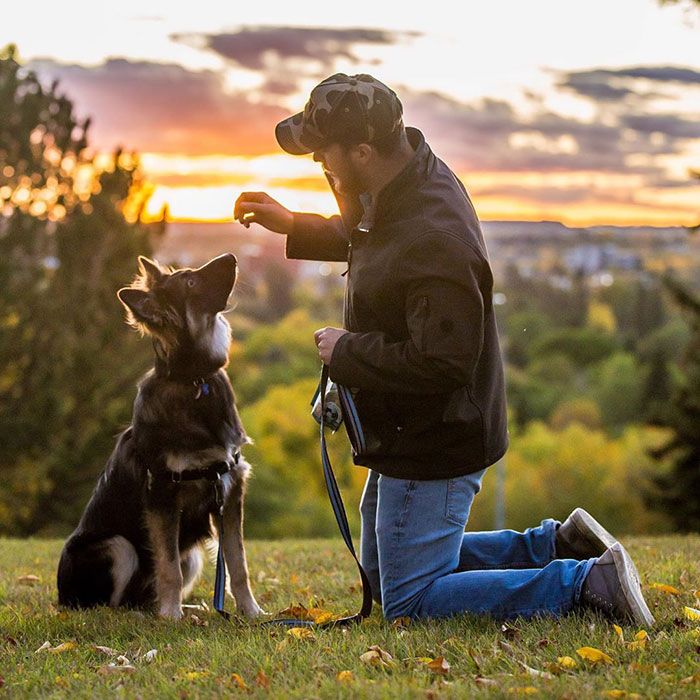For many dog owners in Los Angeles, the challenges extend beyond basic obedience. When a dog exhibits persistent or problematic behaviors such as aggression, severe anxiety, reactivity, or destructive habits, a specialized approach known as behavior modification becomes essential. These plans, meticulously crafted by expert trainers and behaviorists in LA, delve into the root causes of unwanted behaviors, aiming to change a dog’s emotional response and thought patterns for lasting, positive change.
Understanding Behavior Modification
Behavior modification is a systematic, science-based approach to changing a dog’s response to specific stimuli or situations. Unlike simple obedience training, which teaches a dog what to do, behavior modification addresses why a dog is behaving in an undesirable way and then teaches them a more appropriate and healthy response. It’s about changing the underlying emotional state and associations.
Common behavioral issues that benefit significantly from modification plans include:
- Aggression: Towards other dogs, people, or specific triggers (fear-based, territorial, resource guarding).
- Separation Anxiety: Destructive behavior, excessive vocalization, or panic when left alone.
- Leash Reactivity: Lunging, barking, or growling at other dogs or people while on a leash.
- Fear and Phobias: Extreme reactions to noises (fireworks, thunder), objects, or situations.
- Compulsive Behaviors: Repetitive actions like tail chasing, excessive licking, or pacing.
Key Principles of Effective Behavior Modification
Top dog training LA professionals in Los Angeles adhere to a set of core principles when developing and implementing behavior modification plans:
1. Thorough Assessment and Diagnosis
The first and most critical step is a comprehensive evaluation of the dog’s behavior. This involves:
- Detailed History: Gathering extensive information about the behavior’s onset, frequency, intensity, and specific triggers.
- Behavioral Observation: Observing the dog in various contexts to understand their body language and reactions.
- Identifying Root Causes: Determining why the dog is behaving aggressively, fearfully, or anxiously (e.g., is it fear, pain, lack of socialization, genetic predisposition?). This often involves ruling out medical conditions with a veterinarian.
2. Positive Reinforcement and Counter-Conditioning
These are the cornerstones of humane and effective behavior modification.
- Positive Reinforcement: Rewarding desired behaviors to increase their likelihood. This builds trust and makes the learning process positive for the dog.
- Counter-Conditioning: Changing a dog’s negative emotional association with a trigger to a positive one. For example, if a dog is reactive to other dogs, they might receive high-value treats every time another dog appears at a distance where they remain calm. Over time, the dog associates other dogs with good things.
3. Desensitization
This involves gradually exposing the dog to the trigger at a very low intensity, where they remain calm and comfortable. The intensity is slowly increased over time as the dog shows no fearful or aggressive response. This systematic exposure helps the dog habituate to the trigger without being overwhelmed.
4. Management and Prevention
While training is underway, it’s crucial to manage the environment to prevent the dog from practicing unwanted behaviors. This might involve:
- Using muzzles (properly conditioned) for safety in public.
- Avoiding known triggers or situations that cause reactivity.
- Using crates or baby gates to prevent destructive behaviors when unsupervised. Management prevents setbacks and allows the dog to learn new, appropriate responses.
5. Owner Education and Consistency
Behavior modification is a collaborative effort. Owners are empowered with:
- Understanding Canine Body Language: Learning to read their dog’s subtle signals of stress, fear, or discomfort.
- Implementation Skills: Being taught how to apply the modification techniques consistently and correctly.
- Patience and Dedication: Understanding that behavior change is a process that takes time, consistency, and often, small incremental steps.
Top LA Programs for Behavior Modification Plans
Los Angeles offers highly qualified dog trainers and behaviorists specializing in crafting and implementing effective behavior modification plans:
- Fun Paw Care: Known for its holistic and science-based approach, led by Certified Expert Behaviorists. They excel in diagnosing and treating severe issues like aggression and separation anxiety, often through intensive Board & Train programs.
- Elevated Canine Academy: Offers personalized training solutions, including programs designed to address aggression and reactivity, with options for Board & Train and Day Training that provide consistent professional handling.
- The Dog Savant (Brett Endes): A highly experienced canine behavior consultant specializing in complex behavioral issues, offering private in-home lessons to address problems in their natural context.
Conclusion
For Los Angeles dog owners facing challenging behavioral issues, a professional behavior modification plan offers a pathway to lasting change. By combining thorough assessment, science-based techniques like positive reinforcement, counter-conditioning, and desensitization, along with dedicated owner education and consistent management, these programs empower dogs to overcome their struggles and become confident, well-adjusted companions, fostering a more harmonious life for both pet and family.


